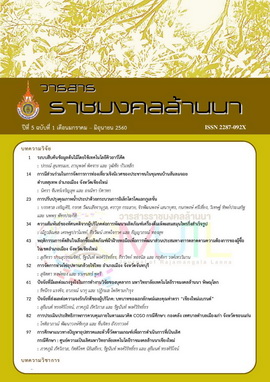A Water Treatment Process by Electrocoagulation
Main Article Content
Abstract
This paper proposes technique of water treatment by using electro-coagulation Method. This system is composed of electric DC Source 200 V 30 A connect to the Anode and Cathode Terminal. The sample water from reservoir in Rajamangala University of Technology Chiang rai Campus is flow into the system in order to improve quality. The water treatment experimental has implemented and parameter of electro-coagulation and water quality parameter are collected such as electric voltage, electric current, pressure, pH, conditions Conductivity, Total Dissolved. Solid (TDS), Dissolved Oxygen (DO), Biochemical Oxygen Demand (BOD) and temperature. The result found that the water quality has improved such DO higher and BOD, TDS, SS is reduced and more clearness water is received.
Article Details
How to Cite
Charoensiri, B., Wattanasatlanukul, K., Krasai, S., Senabut, J., Sritieng, K., Tippasert, W., & Patcharaprakiti, N. (2017). A Water Treatment Process by Electrocoagulation. RMUTL Journal of Business Administration and Liberal Arts, 5(1), 23–33. retrieved from https://so05.tci-thaijo.org/index.php/balajhss/article/view/94696
Section
Research article
บทความวิจัยนี้เป็นของลิขสิทธิ์

